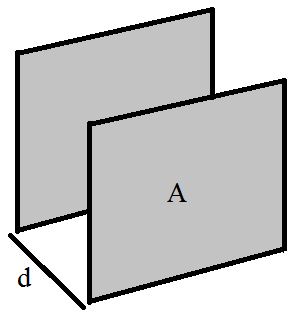If the capacitance of a capacitor is 50 f charged to a potential of 100 v calculate the energy stored in it.
Capacitor stores energy in the form of electric field.
When the voltage is applied across a capacitor a certain amount of charge accumulates on the plates.
Unlike a battery a capacitor voltage is variable and is proportional to the amount of electrical charge stored on the plates.
The total electric potential energy stored in a capacitor is given by.
This is known as the joule effect.
Energy stored on a capacitor.
Capacitor has equal magnitude of ve and ve charge.
How a capacitor stores energy a capacitor stores energy in the form of an electric field that is established by the opposite charges on the two plates a capacitor obeys coulomb s law.
Some elements in a circuit can convert energy from one form to another.
A capacitor stores energy in the form of a electric field specifically electro static charge an inductor stores energy in the form of a magnetic field.
A force exists between two point source charges that is directly proportional to the product of the two charges and inversely proportional to the.
A capacitor stores it in its electric field.
For example a resistor converts electrical energy to heat.
The energy is stored in an electric field between the plates.
Definition of capacitor and battery while a battery stores its potential energy in the form of chemical reactions before converting it into electrical energy capacitors store potential energy in an electric field.
Capacitors are devices which are used to store electrical energy in a circuit.
The energy stored in a capacitor is given by the equation u frac 1 2 cv 2.
The electric potential energy stored in a charged capacitor is just equal to the amount of work required to charge it that is to separate opposite charges and place them on different conductors.
Let us look at an example to better understand how to calculate the energy stored in a capacitor.


























